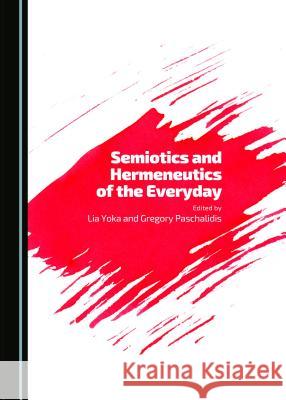Semiotics and Hermeneutics of the Everyday » książka
Semiotics and Hermeneutics of the Everyday
ISBN-13: 9781443871921 / Angielski / Twarda / 2015 / 315 str.
The linchpin of the momentous paradigm shift that produced the new hermeneutics of everyday life was a focus on people as active agents in various cultural contexts, uses and practices, the merging of the conventional distinctions between the private and the public, the local and the global, the material and the symbolic, and the bridging of the agency/structure divide marking grand historical and cultural narratives. In their place, a wealth of new kinds of narratives were produced out what was traditionally taken for granted, condemned or discarded, unmarked, and overlooked as mundane, trivial and inconsequential. Upon concluding The Structures of Everyday Life, whereby he introduced the everyday into the domain of modern historiography, Fernand Braudel admits that to encompass all the many and varied constituents of material life would require close and systematic research, followed by much synthesis and analysis. All that is still lacking. What the text says calls for discussion, addition and extension. Despite the wide range of contributions that have advanced the study of the everyday in the decades that followed, Braudel's suggestion is still pertinent. The volume at hand is both a response to the need for more close and systematic research, for more synthesis and analysis, and a call for more discussion, addition and extension.











